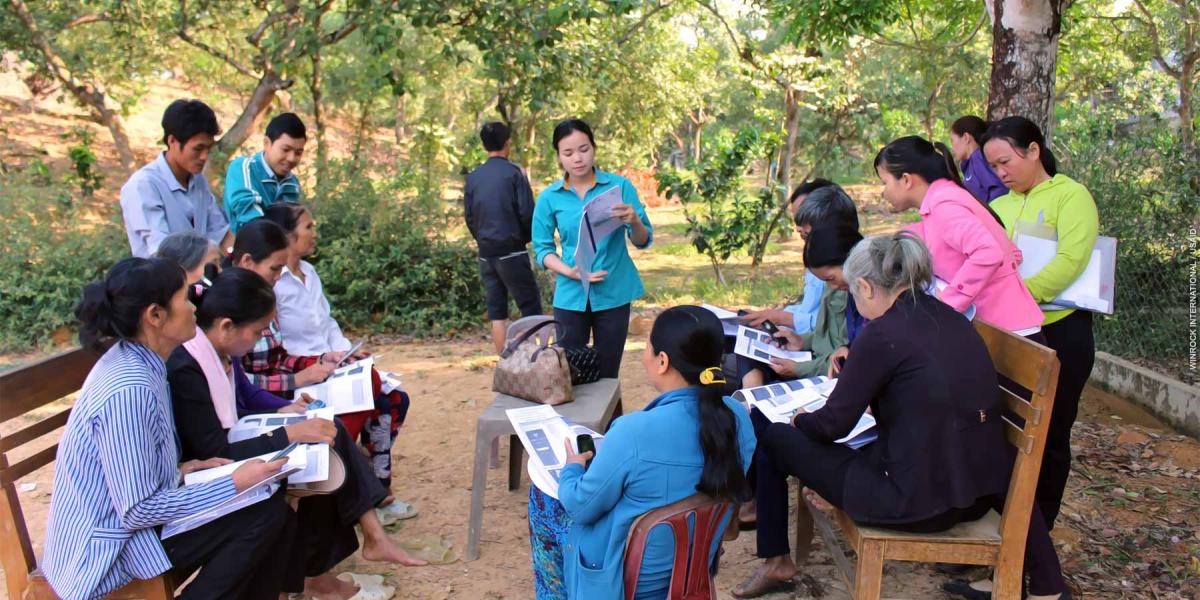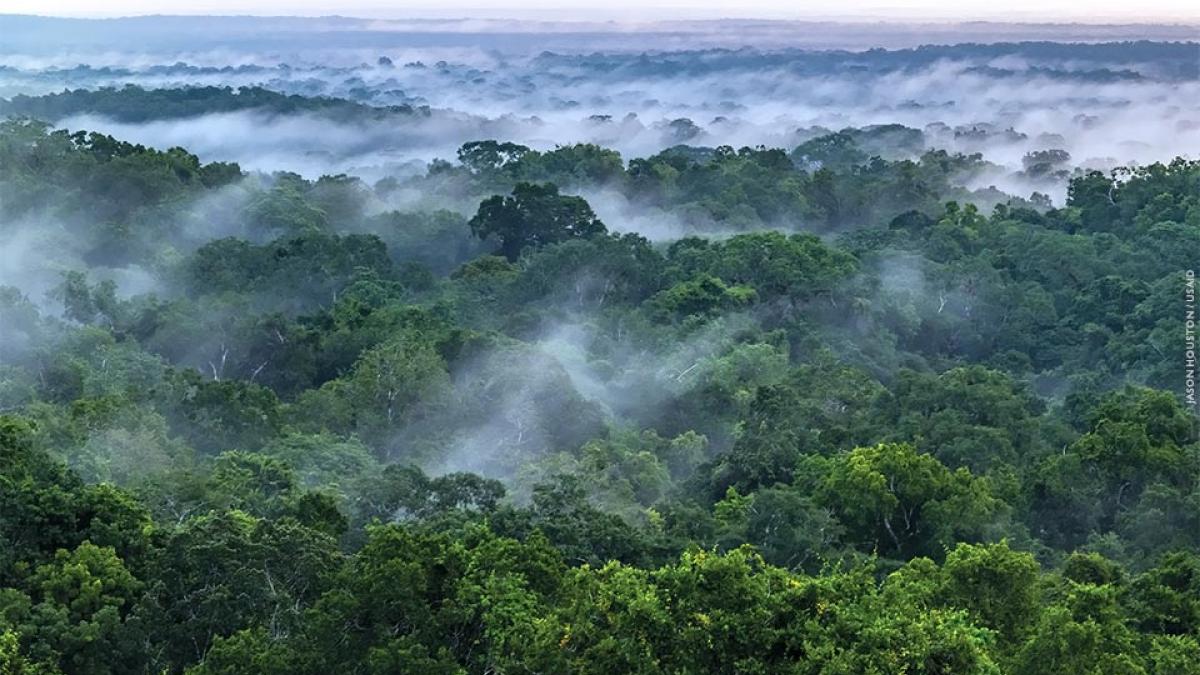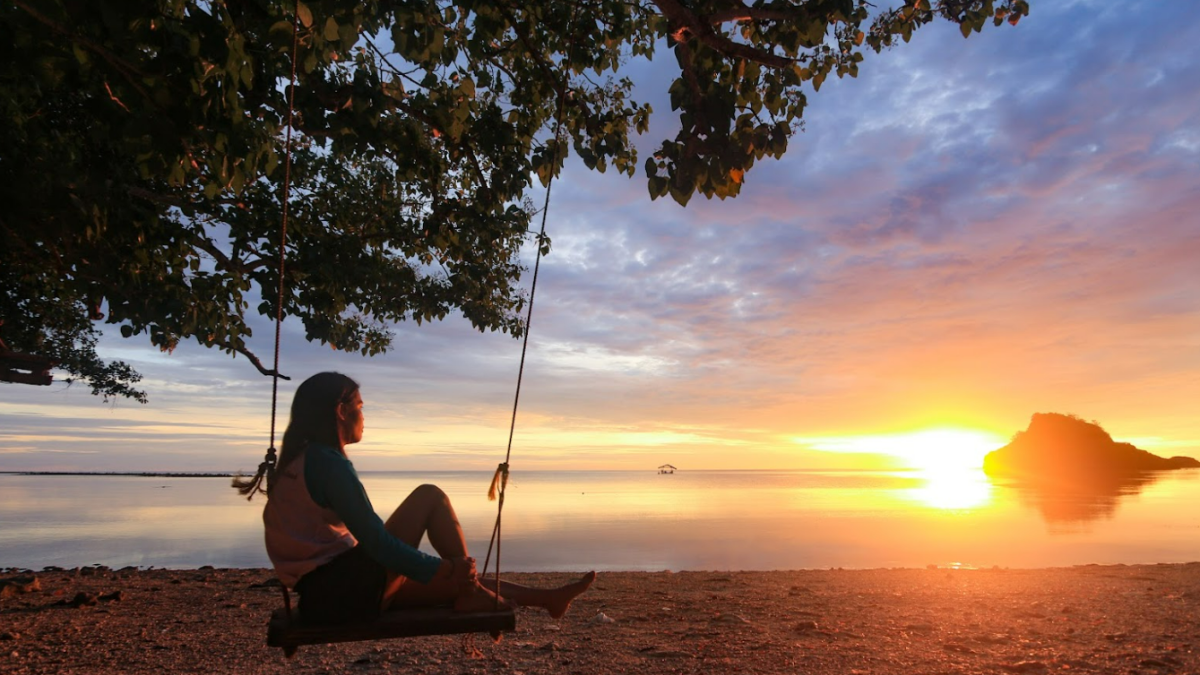Private Sector Engagement to Conserve Forests

In developing countries, the forest sector presents unique challenges and opportunities for private sector engagement. Forests provide more than 86 million jobs, and support the livelihoods of rural communities.
In addition to timber, forests also provide critical nature-based services such as consistent water flows for drinking and agriculture, habitat for wildlife and pollinators, and carbon capture, for which new markets are emerging.
At the same time, global demand for wood, paper, and agricultural commodities has put tremendous pressure on forests, driving illegal logging and large-scale forest clearing, particularly in countries that lack resources for oversight and management. The alarming rate of loss of these valuable ecosystems and high public concern has led companies that rely on forest resources to become a part of the solution to guarantee their sustainability and long-term health.
USAID Private Sector Engagement on Forests Activities
In 2019, USAID invested $181.4 million to help people, enterprises, and governments in 45 countries improve forest and land management, with $180.8 million focused on tropical forests. The Agency works with individual businesses or consortia of organizations committed to legal, equitable, and sustainable practices that improve people’s well-being. By partnering with USAID, the private sector can join a diverse set of government and non-governmental actors to expand sustainable natural resources management, protect the planet’s resources, support inclusive economic growth, and combat climate change.
USAID engages with the private sector to improve outcomes for forest protection, restoration, and management: working with the financial sector to unlock capital; building and enabling access to new markets for ecosystem services; strengthening local capacity to scale sustainable supply chains; and collaborating on new science and technology applications.
USAID Approaches
Leveraging private sector financing is essential for jumpstarting investments to conserve or restore forests. For example, in Southeast Asia USAID helps agricultural and forestry businesses improve environmental stewardship by making connections with investors and reducing barriers to investment. USAID’s 2017-2023 Green Invest Asia program helped catalyze $446 million—more than 15 times USAID’s investment—in public and private investment for sustainably produced commodities.
USAID helps countries create policies and access markets that value carbon sequestration, watershed protection, and other ecosystem services that forests provide. In Fiscal Year 2019, the Government of Vietnam mobilized $127 million for forest and watershed protection through payments for forest environmental services. USAID, the Government of Vietnam, and Microsoft collaborated to develop and deploy an online platform to track these e-payments and to improve monitoring of conservation performance.
USAID and partners build producer capacity for green supply chains. McCormick and other partners are working with USAID in Madagascar to create an alternative to low-yield, high-deforestation agriculture and to help farmer cooperatives produce independently certified and sustainable vanilla. Nearly 1,800 vanilla farmers in the Northeastern region have received Rainforest Alliance certification, and earn premium prices for their certified vanilla. The Sustainable Vanilla for People and Nature project, co-financed and launched by USAID and McCormick in 2020, will reach an additional 3,000 farmers.
USAID is partnering with corporations on science, technology, and innovation. Through the U.S. Government Silvacarbon program, USAID and Google are making powerful cloud computing tools more accessible for national forest monitoring and greenhouse gas reporting. Google Earth Engine training has helped countries improve their forest monitoring and scientific reporting to qualify for performance-based programs such as the World Bank’s Forest Carbon Partnership Facility. Vietnam’s 2020 partnership agreement with the World Bank, for example, will unlock up to $51.5 million in payments to six North Central regional provinces for verified reductions in carbon emissions achieved through improved forest management and restoration through 2025.



